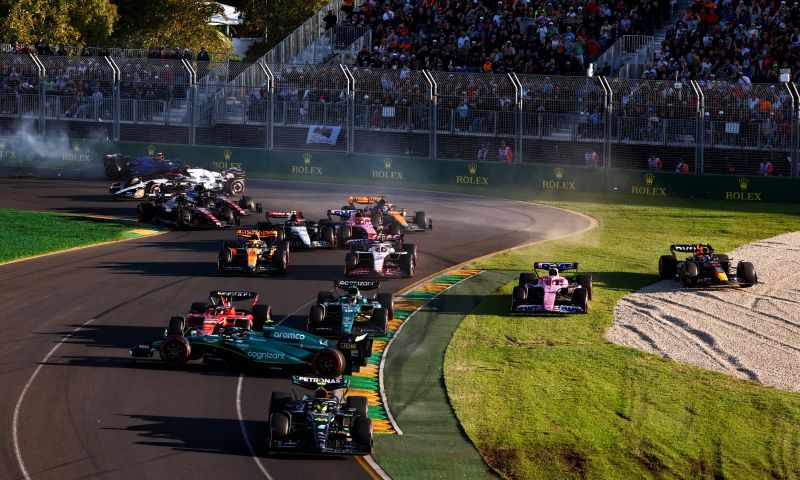Analysis | Protest Ferrari stems from frustration and disappointment
F1 News

- GPblog.com
His eyes were wide open. The cameras kept zooming in on Carlos Sainz's helmet, the Spaniard's disbelief unmistakable. The Ferrari driver had just learned over the board radio that he had been awarded a five-second time penalty for causing the collision with Fernando Alonso. Sainz knew immediately: finishing behind the safety car would leave him with zero points from the Australian Grand Prix.
Through his team boss Frederic Vasseur, it emerged this Friday that Ferrari has filed a so-called 'right to review' with the FIA. According to the Italian racing stable, there is new, relevant evidence showing that Sainz should not have been given a time penalty and thus should still go into the books as fourth. The short term will show whether Ferrari is successful in its protest.
Causer of the spin
Let's be realistic: Carlos Sainz was the causer of Fernando Alonso's spin. Had there been no penalty, it would have been justifiable. However, giving a five-second penalty is likewise. For Sainz and Ferrari, it was probably mainly the moment and the situation that triggered the request for a 'right to review'. Had it not been the last lap but the first, and had Sainz still had plenty of time to drive five seconds away from the competition, Vasseur would never have asked for a post-race hearing.
Speaking to Sky, Vasseur explained that Sainz was outraged that he could not plead his case to the race committee after the race, where others were allowed to do so. The French team boss was referring to Esteban Ocon and Pierre Gasly - who collided - and had to visit the officials. Why investigate (and possibly penalise) one situation only after the race and dismiss the other with a quick ruling with no possibility of a rebuttal?
Unclear results
Of course, Vasseur partly has a point. At the same time, it is precisely the teams that have urged the FIA to ensure that race control decisions are made as soon as possible - and preferably before the chequered flag falls. Only in exceptional cases, when race control needs more information, then hearing the drivers involved first is desirable. Had Sainz been able to tell his story well after the Grand Prix had ended, the outcome of the race would have been unclear all this time. That is precisely what the teams - Ferrari included - wanted to avoid as much as possible.
Vasseur could also look at the matter from another angle. Suppose it had been Alonso who had tapped out, and the Aston Martin rookie had finished ahead of Sainz. What would Vasseur have said, if Alonso had had to go to the stewards first, and so it was unclear for quite some time whether his pupil Sainz had finished on the podium or not? In short, as a race director, you never do it right for everyone.
Vasseur could have said: 'Too bad, we'll take our loss'. Apparently, the disappointment and frustration is still too great to take such a step.

